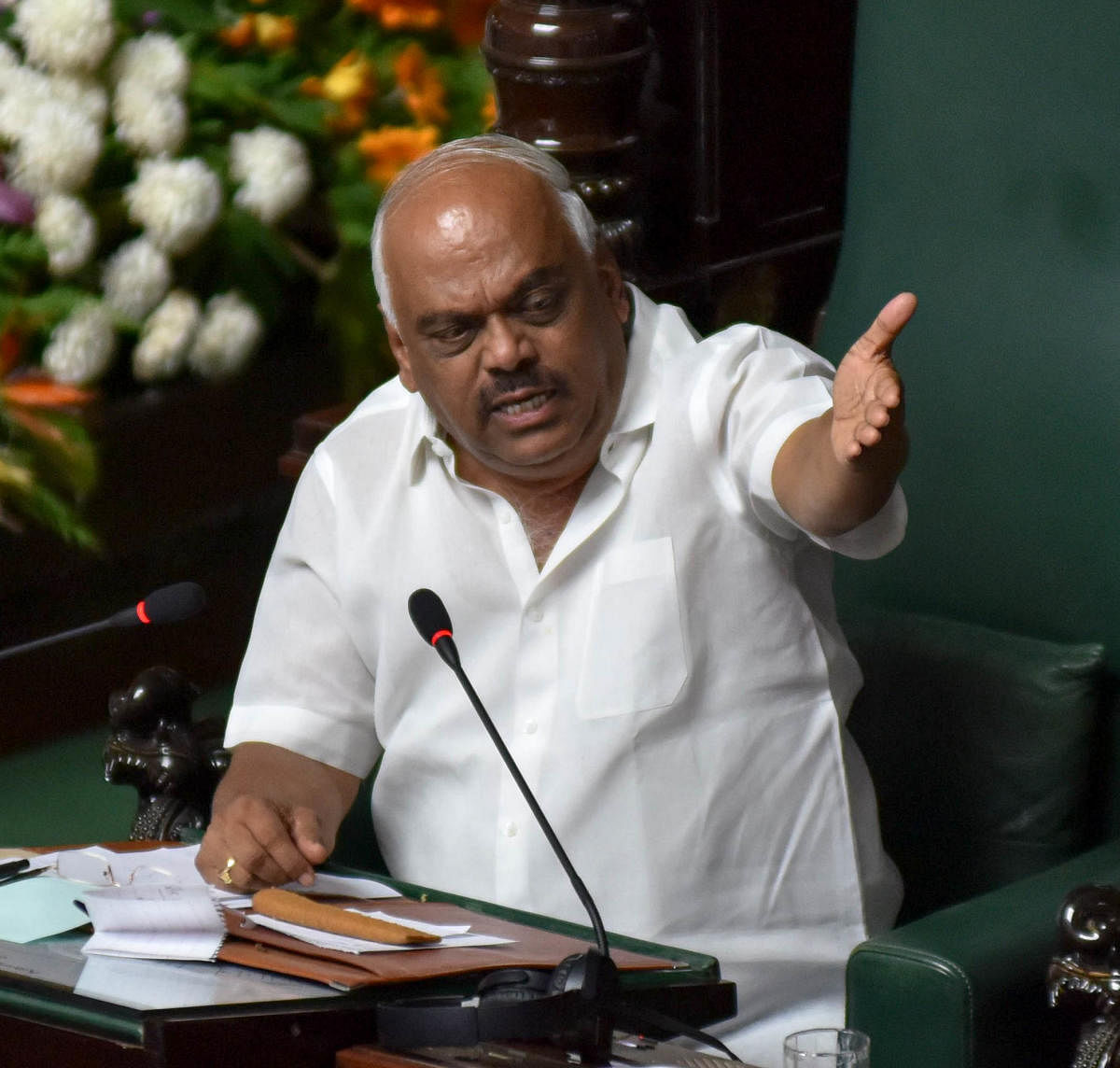
The role of Assembly Speaker K R Ramesh Kumar has become crucial in the unfolding turmoil in the state with a growing number of MLAs who have resigned from their membership. The one-year-old H D Kumaraswamy government, thus, tottered on falling numbers. Ten of those MLAs have further intensified their battle against the current regime by taking their fight to the Supreme Court.
In such a situation, if the Speaker in Karnataka accepts all the resignations, the government would obviously fall, giving the BJP a chance to come back to the power with the numbers stacked in its favour.
Since the rebel MLAs feared the Speaker was acting in a partisan manner, all eyes would be on the Supreme Court on Thursday when it takes up their writ petition for a direction to the Speaker to accept their resignation.
According to Article 190 (3)(b) of the Constitution, the Speaker has been given the power to make an inquiry in case of resignation of a member of the House. “If the Speaker is satisfied that such resignation is not voluntary or genuine, he shall not accept such resignation,” the provision stated. The resignation has to addressed to the Speaker by an MLA in writing under his hand.
Not to forget, the Speaker alone has to effectuate in his exclusive discretion, the schedule which needed to be adopted, in the process of disqualification of MLAs in the Tenth Schedule. With an application for disqualification for some of the MLAs pending, it is to be seen if the Speaker is able to pass the twin test of “natural justice and fair play”. Or as the rebels apprehended, the democracy would be at peril at the hands of the Speaker.
Some insiders confide in that the move by the rebel MLAs was a diversionary tactic to secure a direction from the top court to conduct the floor test quickly, which may open a window of opportunity for the BJP.
